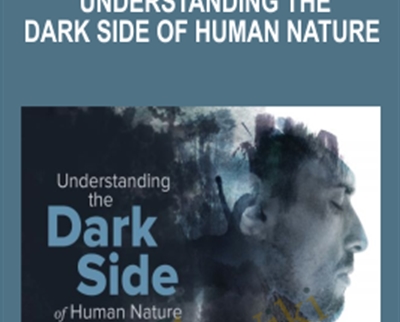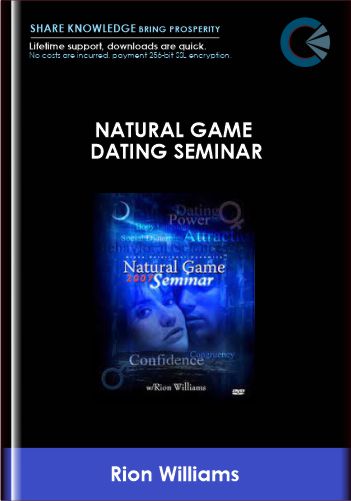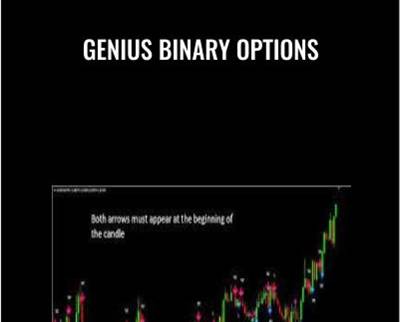Purchase TTC – Understanding the Dark Side of Human Nature – Daniel Breyer, PhD at BoxSkill, You can get access to all files. Direct Download Link and No costs are incurred (No Ads, No Waiting Time, No Capcha).
Not to interrupt your learning, you should download the course after getting the link.
TTC – Understanding the Dark Side of Human Nature – Daniel Breyer, PhD
You don’t consider yourself evil, do you? Of course not! No one does. And yet, the world is full of violence and suffering. We hear the stories in the news. We see the images online. We know too well how bad things can be, but if we’re sure of anything, we’re sure that we’re not like those who do evil. But what makes us so sure? It’s an uncomfortable question, but how different are we, really? Is it possible that we actually share something in common with those who’ve done the worst humanity has to offer? After all, we’re all human. Aren’t we?
In the 24 lectures of Understanding the Dark Side of Human Nature, Professor Daniel Breyer takes you on a fascinating philosophical journey into some of the deepest—and darkest—questions that have haunted humanity for millennia. In exploring the dark side of human nature, you won’t just explore what it means to be evil; you’ll explore humanity’s fragile underbelly by investigating such topics as our thirst for vengeance, our tendency toward anger, our inability to do what we know is right, and much more. These are difficult topics, to be sure, and at least for some people, it would be easier to look away, rather than investigate them. But the truth is that unless we honestly confront who we are in all its sordid glory, we’ll never fully understand ourselves. We’ll never fully appreciate who we really are—or who we might ultimately become.
A Cross-Cultural Approach
Thinkers from across the world and in many different eras have considered the dark side of human nature, and that’s why this course will adopt a cross-cultural approach, investigating perspectives from many different traditions—from the Hindu Bhagavad Gita and the Buddhist Way of the Bodhisattva to the Christian Bible and the scholarship of contemporary philosophers and psychologists. In this course, you won’t just find yourself seeking answers to some of life’s biggest questions—you’ll also discover entirely new ideas from traditions you’ve not yet encountered.
This multi-cultural approach will help you see humanity from many perspectives, providing a wider opportunity for you to find your own answers. With Professor Breyer’s expert guidance, you will engage with a wide range of great thinkers, including:
Confucian philosopher Mencius;
Stoic philosopher Seneca;
Christian theologian Augustine of Hippo;
Buddhist monk and scholar Shantideva (or Śāntideva);
Existentialist thinker Albert Camus;
English philosopher Miranda Fricker;
American psychologist Paul Bloom; and many more.
Fascinating Questions
This course is fueled by the power of questions, one of philosophy’s most potent tools. Some are questions we have all asked ourselves: Why are people violent? Is anyone just born evil? Why is there so much suffering in the world? We might ask these questions with a certain level of cynicism, or perhaps sadness, not even expecting a real answer, but philosophers have taken these fundamental questions seriously for thousands of years. Mining insights from many different philosophical traditions, Professor Breyer provides some fascinating responses to these and many other dark questions, while offering guidance on how to build flourishing and meaningful lives in the face of darkness.
As you’ll discover, confronting the dark side of human nature is sometimes messy. You won’t find every point of view completely satisfying, and sometimes you won’t even know which arguments to believe, but you will be constantly engaged in an ongoing conversation with an expert guide whose goal is to help you think for yourself and reach your own answers to difficult questions like these:
If someone does something evil, does that mean they’re an evil person?
What does it say about us if we do something awful in our dreams?
Is it rational to fear death?
Do we live in a just world, where victims are to blame for their own suffering?
Can anything good come from painful emotions like anger and grief?
Is there something wired into human nature that drives us to kill others?
Is anyone ever beyond redemption or forgiveness?
With so much suffering in the world, how can we create meaningful lives?
Exploring the Dark Side through Stories and Thought Experiments
Stories and thought experiments are powerful, and that’s why thinkers from many different traditions have used them to explore difficult questions. In Understanding the Dark Side of Human Nature, you will encounter fascinating thought experiments and stories—some fictional, some drawn from the headlines—that concretize abstract ideas and help us find meaning in our own lives.
Among many others, you will explore:
Gyges’ Ring. Plato tells of Gyges, a man who found a ring that could make him invisible. With help from this newfound power, he seduced the king’s wife, killed the king, and took over the entire kingdom. If we had a mechanism for escaping punishment, would we honestly live a just life, or one that took us to the dark side?
Zen Parable of the Two Brothers. Two brothers were shopping when they noticed an aging woman who needed help. The older brother carried her and her bags to her car. The younger brother was upset the woman hadn’t said, “Thank you,” and he brought that up again and again later in the day. The older brother responded, “Little brother, I set that woman down hours ago. Why are you still carrying her?” Why do we have a craving for things to go a particular way and allow ourselves to be distraught when they don’t?
A Mother’s Grief. In a famous Buddhist story, a woman loses her baby and becomes overcome with grief, looking for medicine that could bring him back to life. The Buddha says he will help if she can find a pinch of mustard seed from a household untouched by the suffering of death. She finds the spice easily enough, but every household shares a story about a loved one lost. Is it possible that grief, one of our darkest emotions, is valuable to us, as we learn positive lessons about life and the need for community?
The Luck of the Two Partygoers. Two people attend a party, drink beyond the point of legal intoxication, get in their separate cars to drive home, lose control of their cars, and swerve onto the sidewalk. In one case, a man standing on that sidewalk is killed. In the other, the sidewalk was empty. Both partygoers broke the law by driving while intoxicated. Should we judge them the same, or differently? How can we take responsibility for our actions, but recognize the role that luck plays in our lives?
These memorable thought experiments and stories, along with many others, will help you wrestle with big ideas and dark questions by grounding them in everyday experience and making them vividly real.
If we really want to understand ourselves and the world around us, we must confront humanity’s dark side. In Understanding the Dark Side of Human Nature, you’ll do just that, while being guided by thinkers from across the world, with whom you’ll engage in a great conversation, as you attempt to find your own answers to life’s biggest—and darkest—questions. What will you do to confront your own dark side? How will you choose to live in this troubled world?
24 Lectures
Average 31 minutes eachMost of us think of ourselves as good people—reserving the concept of the “dark side” only for science fiction or psychopaths. But that’s not really the truth of human nature. We’ll begin to explore how the dark side relates both to our tendencies toward immorality and evil and to some of the most problematic aspects of the human condition.
1 What Do We Mean by the “Dark Side”?
2 Our Fundamental Nature: Good or Evil?Are people fundamentally good, fundamentally evil, or neither? To develop a sophisticated answer to this basic question, we reach back to a more than 2,000-year-old debate between great Confucian philosophers. Do you agree with optimism, pessimism, dualism, indifferentism, or individualism? Which theory of human nature speaks to you and frames your view of the world?
3 What Is Evil?
You probably have some ideas about what it means to be “evil.” But in order to fully examine the dark side of human nature, we need to go deeper—questioning both whether evil actually exists and what it means to call an action evil. Referencing a wide range of thinkers, some ancient, some contemporary, you’ll explore the ontological and conceptual aspects of evil.
4 Moral Monsters and Evil Personhood
Most of us have done something “bad” or immoral in our lives, although we wouldn’t consider ourselves evil. But where exactly is that line? What does it take for us to label a person evil? By considering four models of evil—the Evildoer, Dispositional, Affect, and Moral Monster models—you’ll begin to develop your own views of when an individual is, and is not, evil.
5 Evil and Responsibility
Are psychopaths responsible for their actions? You might be surprised to learn that many psychologists and philosophers think they are not, due to their inability to recognize important moral facts. Guided by a variety of philosophers, you will consider how much responsibility evil-doers can and should accept for their crimes—and in what ways they might not be so different from the rest of us.
6 Sin: Original and Otherwise
How would you know if you had committed a sin, and what would its consequences be? From the words of Jesus to Thomas Aquinas, Augustine, and modern theologians, you’ll explore the Christian concepts of sin and how they relate to a secular notion of evil. Is it even possible to sin without a divine lawmaker? Indian Buddhist philosophers say that it is.
7 Dark Thoughts and Desires
Have you ever daydreamed about doing harm to another person? If so, studies show you’re certainly not alone. Are our darkest thoughts and desires simply a fundamental part of our human nature? Why can’t we seem to suppress or eradicate them? Explore potential answers to these fascinating questions with help from 6th-century Tianti Buddhist philosophers and modern-day evolutionary psychologists.
8 Suffering and Its Causes
Why do we suffer, and how can we avoid it? The Buddha addresses these questions directly in his Four Noble Truths. Although sometimes erroneously condensed into the pessimistic “all life is suffering,” you’ll learn about the Buddha’s optimistic path forward. But do the Buddha’s teachings carry truth for us in the 21st century? An evolutionary psychologist provides a fascinating answer.
9 The Problem of Expectation and Desire
We turn to the 2,000-year-old Hindu Bhagavad Gita to study the roles played by our desires and expectations, and why we are so often disappointed in our lives. But how could we live without desire and expectations? One path provided by the Gita—being so absorbed in an activity that we lose our sense of self—leads to the experience we know of today as “flow.”
10 The Fear of Death
We are all going to die. How do we respond to that knowledge? Learn why the Roman philosopher Lucretius believed that our fear of death drives us to act against our best interests. And why the Daoist philosopher Zhuangzi wondered if our negative view of death even makes sense. Either way, fearing death seems to be part of what it means to be human.
11 Existential Anxiety and the Courage to Be
Have you ever wondered whether life has any meaning at all? Given the immensity of the universe, how could we be anything more than an inconsequential blip? Learn why so many philosophers who’ve grappled with this existential anxiety conclude that our lives do have value, and how one theologian finds meaning specifically in our courage to face ourselves in the world as it really is.
12 The Goodness of Grief
Could grief ever have a good side? If you’ve ever suffered its agony, you know grief can feel like the very darkest side of human nature. But as you explore the many ways in which philosophers and psychologists have grappled with this issue for millennia, you’ll learn that grief just might be one of our most important opportunities for self-knowledge and connection to community.
13 Homo necans: Why Do We Kill?
Is there something in human nature that drives us to kill others or is it a biological aberration? Watching the news would certainly make you wonder. And if a drive to kill does exist, is it activated by nature or nurture—is it genetic or situational? Studies have supported both points of view. The shocking truth we do know is just how much we all have in common with those who kill.
14 Nightmares and the Dream Self
Who are we in the worst of our dreams? Explore why Freud believed our dreams reveal important aspects of ourselves—both the conscious and unconscious. Learn how Augustine coped when he dreamed of actions that went against his most profound beliefs. Even when we have no idea how to interpret a particularly disturbing dream, it still becomes an opportunity for learning about ourselves.
15 Varieties of Self-Deception
When we hold two contradictory thoughts in our minds at the same time, have we become liars, lying to ourselves about something we know cannot be true? Or are we just harmless wishful thinkers? Is self-deception an adaptation that ha
16 Varieties of Ignorance
Explore the concept of ignorance through the writings of two Indian philosophers who lived centuries apart, Shankara and Ramanuja. Is ignorance a lack of knowledge, or is it wrong knowledge? Learn why some modern philosophers describe ignorance as a complex social phenomenon with the potential to bring out the dark side of our nature—and what we can do to counteract it.
17 Weakness of Will
Have you ever eaten a donut when you knew you shouldn’t? Socrates would have been shocked! He didn’t think it was possible for people to act against their own best interest. Explore many potential explanations for why we sometimes do what we said we never would. Is it a question of a simple failure to follow through on our intentions, or could we be suffering from ego depletion?
18 Luck and the Limits of Blame
Two people go to a party, become legally drunk, and drive home. One kills a pedestrian, the other encounters no one. Should we judge them differently, or the same? Many philosophers have addressed the role of luck and its moral implications in our lives. As you explore their various perspectives, you might not find any easy answers. But you might think twice before placing blame.
19 Victim Blaming and the Just-World Hypothesis
In the Old Testament Book of Job, his friends blamed Job for the tragedies that befell him. After all, if the world is a fair and just place, then victims always get what they deserve, right? Explore whether or not we can eliminate victim blaming while maintaining that the world is, in the end, a fair and just place.
20 Retribution and Revenge
We’ve all heard of people who decide to take the law into their own hands to exact revenge on a perpetrator who harmed them or someone they love—even if that person had already received society’s punishment. Why do we so often feel that need for vengeance? Uncover what we can learn today from the Greek dramatist Aeschylus, as he struggled to reconcile the tension between retributive justice and revenge.
21 Forgiveness and Redemption
What was your reaction when members of the Charleston, SC, church publicly forgave Dylann Roof, the young man who had murdered nine of their members? Could you imagine yourself forgiving him? Did that forgiveness seem morally right or wrong to you? Explore how Christian and Buddhist philosophers explain forgiveness and the redemption of human sinners. Do you believe anyone is truly beyond redemption?
22 The Elimination of Anger
If you could eliminate anger from your life, would you? Should you? Anger can be dangerous, but righteous anger can also be motivating. What if you could eliminate anger, but replace it with the motivation of compassion and loving-kindness? You’ll examine and broaden your thoughts on this powerful emotion by learning from the Buddhist philosopher Shantideva, the Stoic philosopher Seneca, and Nobel Laureate Elie Wiesel, among others.
23Being Peaceful in a Troubled World
How can we find internal tranquility and remain peaceful in the midst of such a troubled world? It isn’t easy, but it is possible. Brain science has discovered that we mirror the behavior of others, and anger can beget anger. But kindness can beget kindness, too. Explore some Christian and Buddhist guidelines for confronting the dark side of human nature without spiraling into the darkness of violence, rage, and fear.
24 The Allure of the Dark Side
Have you ever been morbidly curious about death, violence, or evil? Do you have a fascination with horror movies and love being terrified on roller coasters? Explore how psychologists and philosophers describe the benefits of our fascination with the dark side. As you grapple with death, anger, fear, and dark thoughts, you’ll learn a tremendous amount about yourself—and what it means to be human.
Only today, TTC – Understanding the Dark Side of Human Nature – Daniel Breyer, PhD – Price $53. You will be supported lifetime. Don’t forget to sign up to receive the email, and earn even more rewards.
Read more: understanding the dark side, understanding the dark side of human nature, what is your dark side
Buy the TTC – Understanding the Dark Side of Human Nature – Daniel Breyer, PhD course at the best price at Boxkill. After your purchase, you will get access to the downloads page. You can download all the files associated in your order at here and we will also send a download notification email via your mail.
Unlock your full potential with TTC – Understanding the Dark Side of Human Nature – Daniel Breyer, PhD courses. our courses are designed to help you excel.
Why wait? Take the first step towards greatness by purchasing TTC – Understanding the Dark Side of Human Nature – Daniel Breyer, PhD courses today. We offer a seamless and secure purchasing experience, ensuring your peace of mind. With our trusted payment gateways, Stripe and PayPal, you can confidently complete your transaction knowing that your financial information is protected.
Stripe, known for its robust security measures, provides a safe and reliable payment process. With its encrypted technology, your sensitive data remains confidential throughout the transaction. Rest assured that your purchase is protected.
PayPal, a globally recognized payment platform, offers an additional layer of security. With its buyer protection program, you can feel confident in your purchase. PayPal ensures that your financial details are safeguarded, allowing you to focus on your learning journey.
Is it secure? to Use of?
- Your identity is completely confidential. We do not share your information with anyone. So it is absolutely safe to buy the TTC – Understanding the Dark Side of Human Nature – Daniel Breyer, PhD course.
- 100% Safe Checkout Privateness coverage
- Communication and encryption of sensitive knowledge
- All card numbers are encrypted using AES at relaxation-256 and transmitting card numbers runs in a separate internet hosting atmosphere, and doesn’t share or save any data.
How can this course be delivered?
- After your successful payment this “TTC – Understanding the Dark Side of Human Nature – Daniel Breyer, PhD course”, Most of the products will come to you immediately. But for some products were posted for offer. Please wait for our response, it might take a few hours due to the time zone difference.
- If this happens, please wait. The technical department will process the link shortly after. You will receive notifications directly by e-mail. We appreciate your wait.
What Shipping Methods Are Available?
- You will receive a download link in the invoice or YOUR ACCOUNT.
- The course link always exists. use your account to login and download the TTC – Understanding the Dark Side of Human Nature – Daniel Breyer, PhD course whenever you need.
- You only need to visit a single link, and you can get all the TTC – Understanding the Dark Side of Human Nature – Daniel Breyer, PhD course content at once.
- You can do your learning online. You can be downloaded for better results and can study anywhere on any device. Make sure your system does not sleep during the download.
How Do I Track Order?
- We always notice the status of your order immediately after your payment. After 7 days if there is no download link, the system will automatically complete your money.
- We love to hear from you. Please don’t hesitate to email us with any comments, questions and suggestions.
You must be logged in to post a review.











Reviews
There are no reviews yet.